The Locked up Living Podcast: Surviving and thriving in prisons and other challenging environments
Can institutional culture challenge your mental health? What if your job makes you feel shame, sadness, grief, disgust and fear? What if you are expected not to feel? Or you are expected to be relentlessly competitive? What it’s like to live or work in a prison? Does working with people who commit murder, child abuse and rape affect people who work in prisons and the wider criminal justice system?
How do people survive and thrive when facing significant challenges to our emotional health over a lengthy period? How do we protect ourselves and stay compassionate, loving and trusting? Importantly, how do we find and preserve hope?
Fyodor Dostoevsky wrote that “The degree of civilisation in a society can be judged by entering its prisons”. In this weekly podcast ,your hosts, David Jones (Forensic psychotherapist) and Dr Naomi Murphy (Consultant Clinical & Forensic Psychologist) hope that exploring less visible aspects of prisons will help listeners see that prisons are a window into society and let us see people not only at their worst but also at their best. We feature a rich range of guests sharing snap shots of life in prisons and take a look at hospitals, schools, sport and the police in order to learn from other institutions. We learn about challenges to human integrity and hear important lessons and heart-warming stories about survival and growth when facing adversity in harsh places. We hope that sharing our conversations can help you make changes to your own relationship with institutions that might challenge your emotional health and well-being.
Follow and connect with us and give us feedback. Let us know what you think works, and also what doesn’t. We want you to look forward to the podcast each week. We’ll also be extremely grateful for any reviews that you give us. A simple star or two or a thumbs up will do.
Email: lockedupliving@gmail.com or connect with us on:
Substack: https://lockedupliving.substack.com
Twitter: https://twitter.com/LockedUpLiving
Linkedin: https://www.linkedin.com/in/naomimurphypsychologist/
https://www.linkedin.com/in/david-jones-41910b12/
Insta: https://www.instagram.com/lockedupliving/
Can institutional culture challenge your mental health? What if your job makes you feel shame, sadness, grief, disgust and fear? What if you are expected not to feel? Or you are expected to be relentlessly competitive? What it’s like to live or work in a prison? Does working with people who commit murder, child abuse and rape affect people who work in prisons and the wider criminal justice system?
How do people survive and thrive when facing significant challenges to our emotional health over a lengthy period? How do we protect ourselves and stay compassionate, loving and trusting? Importantly, how do we find and preserve hope?
Fyodor Dostoevsky wrote that “The degree of civilisation in a society can be judged by entering its prisons”. In this weekly podcast ,your hosts, David Jones (Forensic psychotherapist) and Dr Naomi Murphy (Consultant Clinical & Forensic Psychologist) hope that exploring less visible aspects of prisons will help listeners see that prisons are a window into society and let us see people not only at their worst but also at their best. We feature a rich range of guests sharing snap shots of life in prisons and take a look at hospitals, schools, sport and the police in order to learn from other institutions. We learn about challenges to human integrity and hear important lessons and heart-warming stories about survival and growth when facing adversity in harsh places. We hope that sharing our conversations can help you make changes to your own relationship with institutions that might challenge your emotional health and well-being.
Follow and connect with us and give us feedback. Let us know what you think works, and also what doesn’t. We want you to look forward to the podcast each week. We’ll also be extremely grateful for any reviews that you give us. A simple star or two or a thumbs up will do.
Email: lockedupliving@gmail.com or connect with us on:
Substack: https://lockedupliving.substack.com
Twitter: https://twitter.com/LockedUpLiving
Linkedin: https://www.linkedin.com/in/naomimurphypsychologist/
https://www.linkedin.com/in/david-jones-41910b12/
Insta: https://www.instagram.com/lockedupliving/
Episodes

Wednesday Jul 26, 2023
153. Terry Hyde Can a career in ballet harm?
Wednesday Jul 26, 2023
Wednesday Jul 26, 2023
Terry Hyde is a Psychotherapist/counsellor. Terry started dancing aged 6, gaining a5 year scholarship to the RAD aged 10. He joined the Royal Ballet at age 18 andsubsequently joined London’s Festival Ballet as a soloist, playing roles such as, DrCoppelius in Coppelia, Sancho Panza in Don Quixote and The Headmistress inGraduation Ball. Terry left the ballet world to explore other artistic genres, andperformed in musicals in London’s West End, in Film and TV.On retiring from performing, Terry set up as a Business Manager for people in allareas of the performing arts. On selling the business 15 years later, and inspired bythe realization that many of the people he’d worked with also sought his advice onpersonal issues, he retrained as a psychotherapist attaining a Masters Degree inPsychotherapy validated by Middlesex University in 2012.Terry founded www.counsellingfordancers.com in 2017 and has been working tosupport the unique needs of dancers in relation to their mental health ever since. In2021 Terry created the Help4Dancers App and the Dancer’s Personal DevelopmentSeries of Ebooks and ecourses.In 2021, Terry won the One Dance UK Dance Healthcare Practitioner Award and in2022 was invited onto the advisory board of Pointe Magazine.Terry presents interactive Mental Health Self-Care Workshops for Dancers, both inperson and virtually. These proactive workshops help support dancers’ mentalwellbeing, teaching them how to be mentally fit and emotionally strong.

Wednesday Jul 26, 2023
152. Jessica Pandian. Death in Custody.
Wednesday Jul 26, 2023
Wednesday Jul 26, 2023
Jessica Pandian is the author of 'Deaths of racialised people in prison 2015 – 2022: Challenging racism and discrimination.' (link below)
She has an MPhil in Latin American Studies from the University of Cambridge, in which she researched anti-Black policing, gang violence, and racial resistance across Latin America and the Caribbean. Jessica joined INQUEST at the beginning 2021 as a researcher with specialist focus on state violence and structural racism. She now works as a policy and research officer with a broader focus. Jessica came to INQUEST from the Institute of Race Relations, where she researched the policing of the Black community and Black British history. She came across the work of INQUEST during her time at the Institute of Race Relations through interviewing bereaved families that had lost a relative following taser usage. She is also interested in documentary filmmaking and is an advisor to the Independent Film Trust.
Despite decades of activism from bereaved people and their supporters, too often the deaths of racialised people in prison have been dismissed, and the role of racism has been overlooked and ignored.
INQUEST’s new report, Deaths of racialised people in prison 2015 – 2022: Challenging racism and discrimination, makes a powerful intervention as it uncovers new data and tells the stories of 22 racialised people and how they died preventable and premature deaths in prison.
The report specifically looks at the deaths of Black and mixed-race people; Asian and mixed-race people; Middle Eastern and mixed-race people; people of Eastern European nationality; White Irish people and White Gypsy or Irish Traveller people.
https://www.theguardian.com/commentisfree/2022/oct/31/britain-jail-sentence-death-sentence-prisons-justice?CMP=share_btn_link

Wednesday Jul 19, 2023
151. Christopher Charles. RoshiWave - Using light to heal and optimise your brain”.
Wednesday Jul 19, 2023
Wednesday Jul 19, 2023
Christopher Charles, an expert in Light and Sound Mind Machine technology has been involved in the field since the 1980s. He discovered the technology while in high school and was introduced to it by an old Inter Quest brain machine. Charles was interested in the mechanics of the brain-machine and learned from it through reading and talking to people. He has worked with various manufacturers and researchers in the industry. Join Dr. Naomi and David we they talk more about neurotechnology specifically, Electroencephalogram (EEG) with Christopher in this episode of Locked up Living Podcast.
TIMESTAMPS[02:36]Biofeedback Machines[04:22]Early Electroencephalogram testing[05:57] The First Light and Sound Machine[10:10] A Flickering Campfire and Shamanistic Activities.[13:44] Calming the Nervous system with Lights and Sounds[16:08] Music Production and Software Development[19:23] RoshiWave Glasses[28:26] Long-Term Benefits of EEG Devices[31:24] Clinical Research on Light Machines.[33:37] Warnings and Safety: Epileptic Seizures Caused by Photosensitivity.[39:09] The difference between using Roshi and other similar technology.[44:24] Light and Sound Devices and Psychedelic Drugs.[51:08] Closing Remarks
RESOURCES MENTIONEDRoshi anthology by Dr. Victoria Erick - ResearchgateInto The Void by Zoe Seven - AmazonBack from The Void by Zoe Seven - Amazon
Connect with Christopher Charles Connect with Dr. Naomi Murphy on LinkedInConnect with David Jones on Linkedin
Thanks for tuning in!
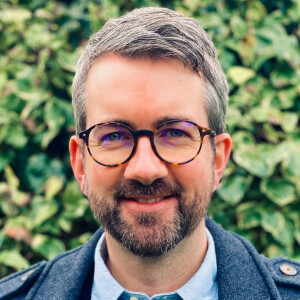
Wednesday Jul 19, 2023
150. Dr Chris James - How to sleep better
Wednesday Jul 19, 2023
Wednesday Jul 19, 2023
Dr. Chris James is a Consultant Clinical Psychologist and sleep specialist. Chris has over 15 years of clinical experience in the NHS working across a range of mental health and sleep services, providing specialist assessments, therapy and training. He now runs an online-based Clinical Psychology Practice & Sleep Clinic, and is the CEO and Founder of Sleep Athletic, providing specialist sleep services to elite athletes and sports teams. Sleep Athletic’s clients include Canada Men’s football team, Liverpool FC, and Arsenal Women’s FC. Chris is an Honorary Lecturer at Cardiff University.

Wednesday Jul 12, 2023
149. Geoff Hopping -Interconnectivity, well-being and psychotherapy
Wednesday Jul 12, 2023
Wednesday Jul 12, 2023
Geoff started his mental health career as a psychiatric nurse, and then subsequently became a mental health social worker. In the late 80’s his social work career took a turn when he found himself working in the HIV/AIDS pandemic in West London. It was during that time that he was fortunate enough to start doing some training with the Elizabeth Kubler Ross foundation in the USA. and it was this seminal experience that started his journey to become a psychotherapist.
He trained initially at the Metanoia institute and qualified as a Clinical Transactional analyst in 1996, and as a Teaching and Supervising transactional Analyst in 2003. He also trained and qualified as a psychoanalytic psychotherapist with the Forum for Independent Psychotherapists and did a one year supervision diploma course at the SAP (Jungian).
He had a private practice in South London for twenty years and in 2005 he became a Consultant Psychotherapist at a high security prison in the therapeutic wing.
Following his retirement from the prison in 2013, he developed a supervision practice and has been a tutor at the Metanoia Institute, TA East and The Link centre where he has recently become a director.
He started ministry training with the One Spirit Foundation and is due to be ordained in July 2021. He is passionate about bringing a spiritual dimension to psychotherapy education believing that the interface between the two is both exciting and essential.

Wednesday Jul 12, 2023
Wednesday Jul 12, 2023
Hardi has studied economics at the University of Tartu in Estonia and business communication at the University of Washington. For the last 16 years, he has been an entrepreneur and established 9 companies in very diverse fields like agriculture, sales, IT, retail, Electric Vehicles, and mycology. He has led over 600+ membered sales teams in Scandinavia and US and established the world’s biggest outdoor medicinal mushroom plantation.Since 2016, Hardi has been actively following the fields of psychedelics and psychotherapy as an investor and practitioner. Monika is a health promotion specialist, health coach and certified nutritionist. During the past 13 years, she has attained degrees in psychology and health promotion, accompanied by different studies in the field of nutritional science, health coaching, nutrigenetics, nutrigenomics, and many other topics in the field of health and well-being. During the past 7 yeast, she has worked side-to-side with several doctors and functional medicine specialists. In her private practice coaching and counseling people, she developed a holistic, in-depth mind-body approach program over the years, providing her clients with a format for achieving sustainable results. Monika is the co-founder of Inlibrium and today has the leading role in putting together Inlibrium’s holistic Health Transformation program and the team of different specialists working with their clients. Right now Monika and Hardi are establishing the world's first one-of-a-kind holistic transformation centre called Inlibrium. Inlibrium was born out of a desire to bring about radical change – in a radically new way: by supporting visionary leaders to actualise their potential and maximise their positive impact on the world.Monika & Hardi have created a transformational program unlike anything in the world. Catalysed by psychedelic-assisted therapy, Inlibrium’s in-depth program integrates cutting-edge therapeutic methods in a long-term approach that aims to give you a deeper understanding of your core being, purpose, and life mission. The programme is evidence-based, data-driven, and, most importantly, completely personalised.
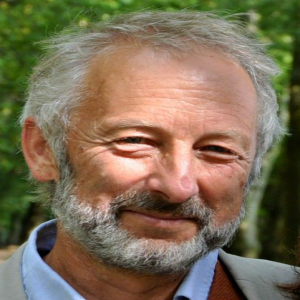
Wednesday Jul 05, 2023
147. Mike Grenville. How to have a better death
Wednesday Jul 05, 2023
Wednesday Jul 05, 2023
In the second of our conversations about death or really facing up to death before it is too late we talk to Mike Grenville. Mike is an independent Funeral Celebrant and Dying Doula supporting people dying and the families. He is also a member of the Home Funeral Network supporting families to care for their own dead and make informed choices about all aspects of Funerals including Home Funerals. He runs workshops on dying and Dying To Talk sessions creating a safe space to talk about death and dying.
Mike explores how our society became so death phobic in this conversation.

Wednesday Jul 05, 2023
146. Leon Ancliffe. Can virtual reality improve our death?.
Wednesday Jul 05, 2023
Wednesday Jul 05, 2023
Today we have two conversations about death. Leon is a creative film maker who has worked with the NHS and others to highlight the importance of talking about death before it is too late. Mike Grenville, the other conversation, explains what it is to be a death doula.
Originally from the North of England, Leon started his career as an actor and dancer. Building on his experience in creative media, including freelancing as a cinematographer for the BBC, and directing numerous healthcare related projects for the NHS and charity sector, he founded Flix Films in 2009. His aim was to create a production company that reflected his desire to influence positive change across diverse sectors and topics, benefiting people across the UK and beyond.
Leon’s enthusiasm for driving innovation inspired him to set up Flix VR, with the aim to pioneer the use of Virtual Reality in healthcare, and raise the profile of utilising VR experiences to enhance palliative and end-of-life care. In 2017 he partnered with Royal Trinity Hospice in London to conduct an ethically approved study to explore the potential of virtual reality as therapy for people at the end of life. Today Flix VR is at the cutting edge of 360° Virtual Reality (VR) content development; ranging from person led VR tours of specialist healthcare environments to producing VR simulations to improve training outcomes across the public sector.
Since setting up Flix VR Leon has been a Keynote Speaker at the Global Nursing Management and Innovation Forum in Rome, the GIANT Heath Event, Pharma MCM Meetup, the APM Supportive and Palliative Care Conference and the MND Association Annual Conference.
“Exploring how immersive technology can benefit individuals and communities is an absolute privilege, but increasing the understanding and utilisation of Virtual Reality and have a real impact in the health and public sectors is what drives me”
Twitter - @FlixFilmsUKWebsites – www.flixvr.com - www.flixfilms.com

Wednesday Jun 28, 2023
145. Tanni Grey-Thompson - how to keep young athletes safe in sport
Wednesday Jun 28, 2023
Wednesday Jun 28, 2023
Tanni Grey-Thompson is a Welsh politician and TV presenter as well as being a former wheelchair Paralympian. Over her Paralympic career she won 16 medals including 11 golds for wheelchair racing, she held over 30 world records and also won the London Marathon 6 times. She was also BBC Wales Sports Personality of the Year on three occasions and received the BBC Sports Personality of the Year Lifetime Achievement Award in 2019.
Tanni is remarkably clear and open about her sporting achievements and later work resporting on the state of sporting organisations and their sometimes lax approach to care and potential abuse.
Tanni has not only made history in the sporting arena. After she retired, she expanded her broadcasting experience and became the first wheelchair user to present on BBC tv. She has been a key part of their commentary team since the Beijing Olympics.
In addition, Tanni has held a number of advisory and consultancy roles over the years and also represented many charities. She has also been Chancellor of Northumbria University since 2015.
Tanni’s significant achievements have been formally acknowledged many times. She received an MBE in 1993, this was advanced to an OBE in 2000 and she was made a Dame in 2005 for Services to Disabled Sport. In 2010, she was made a lifelong peer where she sits as a cross-bencher.
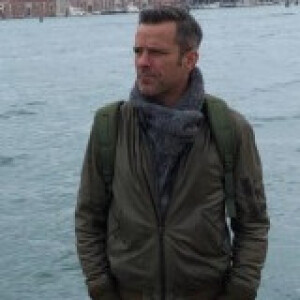
Wednesday Jun 21, 2023
144. David Maguire: Masculinity in prison - beyond stereotypes
Wednesday Jun 21, 2023
Wednesday Jun 21, 2023
Dr David Maguire (Honorary Senior Research Associate, UCL, Institute of Education)
Dr David Maguire has researched and managed projects for excluded groups across sectors that include housing, education, prison and the wider criminal justice system. In 2016 he was awarded D.Phil. (PhD) from the University of Oxford for research focusing on the interplay between masculinity, education, (un)employment, crime and imprisonment. After holding Lectureship positions in Criminal Justice, Criminology and Sociology, David took up a British Academy Postdoctoral Fellowship at UCL’s Institute of Education that explored post prison transitions into employment and education. He has written and published on prison masculinities, and is the author of British Society of Criminology prize winning book: Male, Failed, Jailed : Masculinities and "Revolving-Door" Imprisonment in the UK. He is currently the Director for the Prison Reform Trust's Building Futures project, a five-year programme for prisoners who are serving or have served 10 or more years in prison.
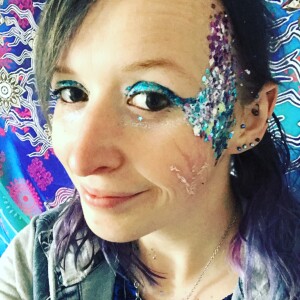
Wednesday Jun 14, 2023
143. Ellie Wilbore: What’s it like to undergo therapy in a therapeutic community?
Wednesday Jun 14, 2023
Wednesday Jun 14, 2023
The Retreat in York was a groundbreaking psychiatric service opened in 1796. Acorn was a women'stherapeutic community which ran for many years before closing as the Retreat withdrew from in patient activities. Ellie Wildbore was a member of the TC. This research seeks out staff and residents from four years ago to assess the benefits and effects of being in the TC and we reflect on the tragic loss of such valuable and effective services.
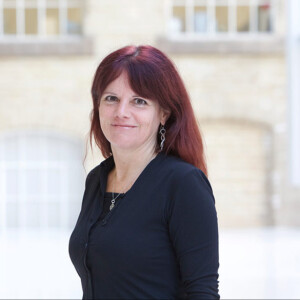
Wednesday Jun 07, 2023
142. Belinda Winder. Sexual Offending, exclusion and ”othering”.
Wednesday Jun 07, 2023
Wednesday Jun 07, 2023
Belinda is a Professor of Forensic Psychology. She is Research Director of the Centre of Crime, Offending, Prevention and Engagement (COPE), and part of the Sexual Offences, Crime and Misconduct Research Unit a at Nottingham Trent University. Working with people with lived experience, she seeks to make a difference in the world by designing and undertaking mixed-method research to inform and provide evidence-based practice and policy. Her primary field is sexual offending, but she also has a particular interest in life after prison and the reintegration of people into the community.
Belinda’s primary area of research interest is sexual offending but she’s also been very committed to exploring what life is like for people after they leave prison and how they re-integrate. She is co-founder and previously a trustee of the Safer Living Foundation, a charity set up in 2014 to prevent further sexual offences. The charity won the Robin Corbett Award for prisoner rehabilitation in 2015 and was awarded the Third Sector Charity of the Year in 2019.
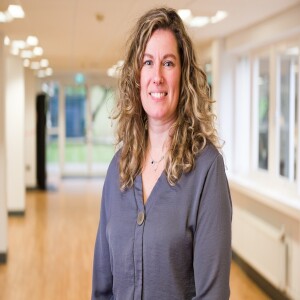
Tuesday May 30, 2023
141. Dr Jenny Mackay: Female perpetrators of intimate partner violence.
Tuesday May 30, 2023
Tuesday May 30, 2023
Dr Jenny Mackay is Principal Lecturer (forensic psychology) at Nottingham Trent University, with responsibility for outreach and student volunteering, Associate Course Leader for MSc Forensic Mental Health, Associate Fellow of the Higher Education Academy and Chartered Psychologist. She teaches on both the undergraduate and postgraduate psychology courses on the following modules:
Before joining NTU, Dr Jenny Mackay conducted her PhD titled, 'Comparing the treatment needs of women and men who perpetrate intimate partner violence'. Jenny currently holds Associate Fellow status with the Higher Education Academy, and is working towards Fellowship.
Prior to this, Jenny has spent her career in predominantly practitioner roles, working with vulnerable clients in a range of settings, both forensic and non-forensic. She has delivered substance misuse work, offending behaviour programmes and psychological one-to-one work in prisons with adults and young adults. She has worked in a Secure Children's Home with 10-17 year olds who have offended or who are considered 'at risk'. Jenny also gained experience carrying out in-depth functional analyses and was trained to write and evaluate Positive Behaviour Support plans whilst working as a Behavioural Clinical Specialist for the NHS with adults with learning disabilities and challenging behaviour. Jenny has also worked for the Probation Service, as a Project and Policy officer for an adult education research charity and has delivered workshops for expectant and new parents.
Research areas
Jenny is primarily interested in intimate partner violence (IPV) perpetration, particularly understanding the evidence base of pathways to perpetration and how these might inform interventions. She is particularly interested in how women come to perpetrate IPV and the psychological mechanisms that underpin this.
Jenny is interested in policy and practice development in this area, specifically, how interventions for those who have perpetrated can be developed to reflect our most up-to-date understanding of the evidence base.

Wednesday May 24, 2023
140. Ad Vingerhoets. The Psychology of Crying
Wednesday May 24, 2023
Wednesday May 24, 2023
Ad Vingerhoets is emeritus professor of Emotions and Wellbeing. He was affiliated with the Department of Medical & Clinical Psychology of Tilburg University, Tilburg, The Netherlands. His areas of expertise are stress and emotions, and quality of life. In particular, his research on leisure sickness, homesickness and nostalgia, but especially crying, attracted much international media attention.
In addition to his publications in academic journals and books (>400), he also wrote some popular Dutch books on, among other subjects, love, crying, and, very recently, the functions of emotions in general.

Wednesday May 17, 2023
Wednesday May 17, 2023
Dr Rina Bajaj is a Chartered Counselling Psychologist. She holds a first-class BA (Hons) in Psychology and a Doctorate (DPsych) in Counselling Psychology. Rina has over 15 years of experience and practices across London, UK. In 2017, she founded her private consultancy, Rina Bajaj Ltd, which offers a specialist therapeutic service for adults and young people providing counselling, CBT, clinical supervision, EMDR therapy, couples/relationship therapy, business consultation and coaching. She has worked with many corporate companies, including several universities, providing workshops and training on areas including staff well-being, mental health awareness, mindfulness and stress management.
She is also well voiced on cultural issues and, as a young Asian woman, she is interested in how we define ourselves and what is considered “acceptable” in our society. Rina is also an expert on current issues and works with clients who experience anxiety, trauma and depression, amongst other common mental health concerns.
Dr Rina Bajaj has worked with many interesting clients over the years including YouTube stars, up and coming young celebrities, Reality TV personalities, high net worth individuals, athletes and musicians/artists. Having grown up with musicians in the family this is an area she has great insight to. Rina is naturally very empathetic and always wanted to be in a profession that could support people to change in a positive way. She is a great believer in experiencing new things and believes that if she asks her clients to step out of their comfort zone, then she must be prepared to do the same.
Rina is a regular contributor to national media and is a confident presenter having spoken at national emotional wellbeing conferences aimed at a range of professionals. Recent media contribitions can be viewed via: linkt.ree/drrinabajaj
She is so passionate about mental health and wellbeing, that she has dedicated her instagram page to raising awareness of related issues. She hosts a regular instagram live session called “Chat with Dr Rina”, where she inteviews a variety of guests about their life experiences and how they take care of their own wellbeing
She is currently writing a self-empowerment book about the relationship that we have with ourselves as well as other people, which will be available soon. She likens it to having a psychologist in your pocket. The book will include practical activities and advice on how to challenge and work on relationships and self-image.
In her spare time Rina likes to focus on all aspects of her wellbeing. She shares a holistic approach to life and makes time for meditation, travelling, self-development, boxing and body pump!
Follow Dr Rina Bajaj on social media channels:
Facebook: DrRinaBajaj
Instagram @Dr.Rina.Bajaj
Twitter: @DrRinaBajaj
YouTube: Dr Rina Bajaj
tiktok@drrina8

Wednesday May 10, 2023
Wednesday May 10, 2023
After starting out in Law Michelle moved to become a forensic psychologist. In this conversation she tells us about the things she notices about being in a prison, how important support and supervision is and how some professions are denied this passage to mental health and wellbeing.
Michelle Smith is a Chartered & Registered Forensic Psychologist who has worked across a range of forensic settings over the past 30 years including prisons, probation, secure hospital settings (both independent sector and NHS), and community settings. She currently works part time as an Associate Professor at the University of Lincoln and her teaching, research and ongoing independent professional practice centres on the development of trauma-informed ways of working in criminal justice, health and social care systems. This includes a focus on the impact on staff of such work and the development & maintenance of resilience and professional boundary management through reflective processes and systems.
For more detail please see book chapter mentioned in podcast:
Smith, M. (2022). The Impact on staff of Trauma-Informed work in forensic settings. In P. Wilmott & L. Jones (Eds), Trauma-Informed Forensic Practice (pp. 363-379). Routledge.
Further reading on some of the models mentioned in podcast:
Boundary Seesaw Model
Hamilton, L. ( 2010 ). The boundary seesaw model: Good fences make for good neighbours . In A. Tennant &K. Howells(Eds), Using time not doing time (pp. 181 – 194 ). Wiley- Blackwell .
Model of Dynamic Adaptation
Clarke ,J.( 2004 ). The psychosocial impact on facilitators of working therapeutically with sex off enders: An experimental study (Unpublished doctoral thesis). University of York .
Clarke ,J.( 2013 ). The resilient practitioner . In J. Clarke & P. Wilson (Eds), Forensic psychology in practice: A practitioners handbook (pp. 220 – 239 ). Palgrave MacMillan .
Human Learning Systems Approach (the brain fog moment!)
Lowe, T., French, M., Hawkins, M., Hesselgreaves, H., & Wilson, R. (2021). New developments: Responding to complexity in public services: The human learning systems approach. Routledge.
Check out the transcript over on substack: https://lockedupliving.substack.com/p/how-does-working-in-a-trama-informed

Monday May 08, 2023
Monday May 08, 2023
In this 15 minute clip we hear from Eden who describes the traumatic consequences of whistleblowing, James Wong who tells us about the importance of engaging young men with a sense of power and creativity to prevent their criminalisation, Dan Lawrence talking about the use of restrictive practices in secure hospitals, and Dean Kingham a solicitor who represents some of societies' most scorned people discussing why prison doesn't work.

Monday May 08, 2023
136 Wellbeing. Our submission for this British Podcast awards section.
Monday May 08, 2023
Monday May 08, 2023
This is our 15 minute submission for the Wellbeing section of the British Podcast awards. In our podcasts we are always seeking positive experiences to balance some of the more damaging or corrosive experiences we encounter. Our well-being entry may be a quirky take but its based in real-life applications of psychological principles
Including Hugh Venables discussing how to journal and why its so good for our mental health, Shona Herron describing her research into emptiness, Joe Sabien on harnessing awe at the sea to help marginalised people heal and Caroline Purvey on the importance of releasing the psoas muscle for emotional and physical well-being.

Monday May 08, 2023
Monday May 08, 2023
So many great guests and conversations to choose from. But we needed a conversation that could be distilled down to 15 minutes.
We chose Shona for our submission to the British Podcast Awards for the Interview category. This is a short clip where Shona describes the emotional impact of her work with the children of imprisoned parents. It was a powerful interview and we found it difficult to distill it down to 15 minutes. Let us know what you think. Maybe you'd have chosen differently?
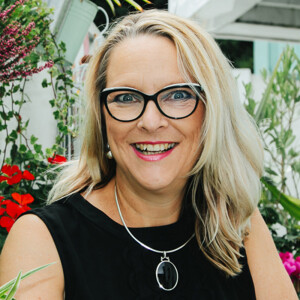
Saturday May 06, 2023
134 Sarah J Naylor. Coronation Day special. Transitions: How to grow through crisis
Saturday May 06, 2023
Saturday May 06, 2023
Sarah J Naylor, The Midlife Success Coach
“Making Midlife Magical!”
Sarah helps midlife women in their 40s and 50s, rediscover, or even discover who they are as they reach this magical midpoint in their lives.
She helps them put some ‘sass in their ass’ and propel themselves forward with strength and style.
In fact, she’s on a mission to get mid-life women enjoying ALL aspects of their life again and that includes loving and valuing themselves, being cared for, enjoying great sex, kick-starting their careers, and believing that their age, and every beautiful wrinkle, brings with it wisdom and experience.
Age, she states, is their superpower!
Sarah encourages facilitating a growth mindset approach, positive psychology, solution-focused outcome thinking, shifts in perspective, energy alignment, spirituality and so much more, including her APE Mindset™ Methodology to help women navigate their way through their midlife and all the changes that take place: personally, and professionally.
At 57, Sarah has personally navigated a raft of personal and professional changes including divorce (after 20 years), relationship breakdowns, online dating, finding love, embracing entrepreneurship at 43, a flood of personal development, and training, resulting in becoming a qualified coach, an Amazon number one best-selling author, speaker, business owner, and Harnessing Happiness podcast host, which has had in excess of 37K global downloads in over 129 countries..
If you would like to know more about Sarah please head over to her website www.sarahjnaylor.com or please do connect with her on LinkedIn https://www.linkedin.com/in/sarahjnaylor/
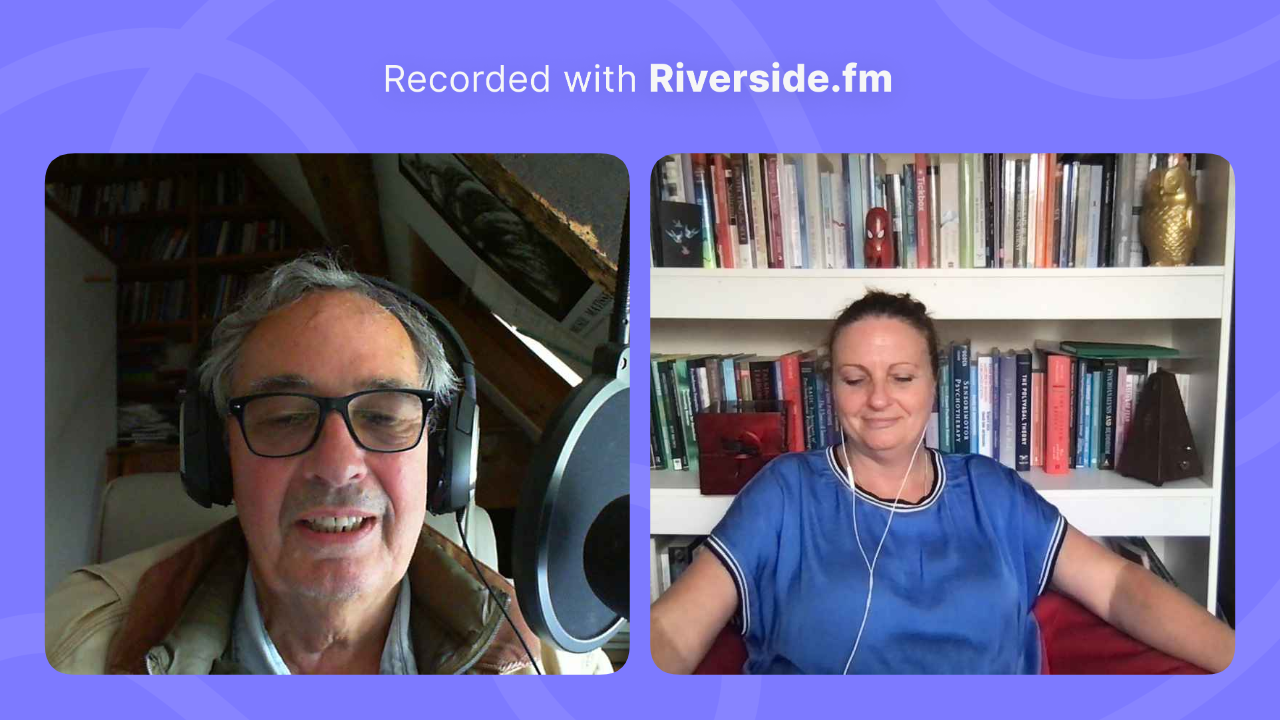
Why 'Locked up Living?'
David is a psychotherapist who has worked leading therapeutic communities in English prisons and in Millfields, an NHS forensic setting in East London. Naomi is a Consultant Clinical and Forensic psychologist who was, for many years, clinical lead at The Fens, a treatment programme for serious offenders at HMP Whitemoor. We had both experienced painful and destructive forces in our work and so we set out to discover what things make a positive difference for staff and service users and what is it that makes things go wrong. Of course we found out that there is no easy answer but there are many fascinating and valuable experiences to be heard.






